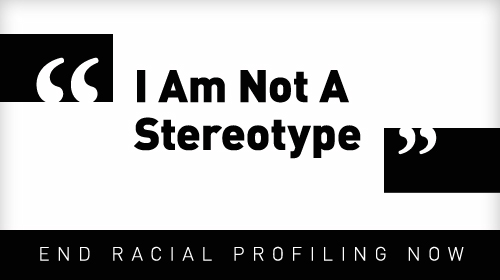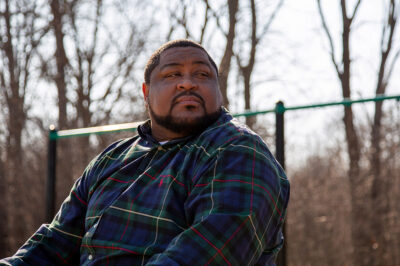
By Boni Rhodes-Berg, ACLU of Minnesota Client
I was born and raised in Minneapolis along with my siblings. We were brought up to be proud of who we are and to obey the law. Plus, for 20 years, my father was an officer with the Minneapolis Police Department, and he made it pretty clear that we had better not get in any trouble.

Boni Rhodes-Berg
I grew up believing that if I abided by the law and treated myself and others with respect, I wouldn’t have to face questions by law enforcement or be singled for any reason. But that all changed 11 years ago when law enforcement officials at the Minneapolis-St. Paul International Airport stopped me for no reason other than the color of my skin.
I was returning home from a two-week trip visiting my younger son Damond, who resides in Los Angeles. I took the redeye because I was using frequent flyer miles and it was the only available time to use the reward travel. I had taken the day off from my job in downtown St. Paul and I planned to go straight to bed when I arrived home. I liked to be comfortable when I traveled, so I wore jeans, a jacket, my hair back in a baseball cap, and no makeup.
Once I got off the plane, I collected my luggage and headed toward the elevator to take the shuttle home to downtown Minneapolis. While I was waiting for the doors of the elevator to close, I saw a man and woman running to catch the elevator, so I held the door open. They entered the elevator and rode with me. When the elevator door opened, the women said “Excuse me ma’am.” I turned around and they had their badges out.
They said they were Drug Enforcement Administration agents and it was their job to watch for people bringing in drugs and money for laundering. I asked them what their criteria was for stopping me, and they told me it was because my carry-on bag “looked heavy.” After I questioned them, they got defensive and told me “not to be indignant.” They wanted to see my airline ticket and my identification. The female officer asked to check my carry-on, so I told her to go ahead. In my carry-on, she found my Bible and devotional books, toiletries, jewelry, lingerie, pajamas and a soy powder product, but no drugs. The agent closed my bag and went on their way.
After they let me go, I proceeded to catch my shuttle. On the way, I started crying. I was so mad. I knew they had stopped me because I was African-American. I knew that I had been racially profiled.
Immediately after that terrible experience, I got in touch with my representatives, senators and the governor office. I called the DEA in Minnesota. They needed to know that I didn’t do anything wrong and yet I was stopped and treated as if I had just because of how I looked. I have since successfully settled a civil rights lawsuit with the DEA.
But from that day on, my feelings about the police and law enforcement have never been the same. That following Saturday, I had to go to the airport again to catch another flight because I had been invited to attend a surprise 50th birthday party that my girlfriend’s husband was throwing for her in Orlando, Fla. Upon arriving at the Orlando airport and on my way to catch the hotel shuttle, a police officer asked me if I needed any help. I was paranoid, and I couldn’t help but wonder “why is he asking me?”
It’s been more than a decade since that horrible experience, and going to the airport is never comfortable for me. I feel anxious, always wondering, “What’s going to happen?” I feel uncomfortable around the police, too.
I worry for my sons, my grandchildren and my nephews and nieces, too. We all have a self-image, and we like to think that is how the rest of the world sees us as well. But that’s not the case. I now know the reality is that I’m defined by my skin color, and so is my family. That’s all the DEA agents saw that day at the airport and that’s all they used to make a decision about me — one that will impact me for the rest of my life.
Take action. Stop what happened to Boni from happening to anyone else again. Urge your member of Congress to pass the End Racial Profiling Act, legislation sponsored by Sen. Ben Cardin (D-Md.) and Rep. John Conyers, (D-Mich.) which would, among other things, provide training to help police avoid responses based on stereotypes and unreliable assumptions about minorities.
This is the second of eight blog posts in the series “I Am Not a Stereotype: End Racial Profiling Now,” on ACLU’s Blog of Rights.
Learn more about racial profiling: Sign up for breaking news alerts, follow us on Twitter, and like us on Facebook.


